Black Women Quotes
Quotes tagged as "black-women"
Showing 1-30 of 185

“Most people write me off when they see me.
They do not know my story.
They say I am just an African.
They judge me before they get to know me.
What they do not know is
The pride I have in the blood that runs through my veins;
The pride I have in my rich culture and the history of my people;
The pride I have in my strong family ties and the deep connection to my community;
The pride I have in the African music, African art, and African dance;
The pride I have in my name and the meaning behind it.
Just as my name has meaning, I too will live my life with meaning.
So you think I am nothing?
Don’t worry about what I am now,
For what I will be, I am gradually becoming.
I will raise my head high wherever I go
Because of my African pride,
And nobody will take that away from me.”
― Wealth for all Africans: How Every African Can Live the Life of Their Dreams
They do not know my story.
They say I am just an African.
They judge me before they get to know me.
What they do not know is
The pride I have in the blood that runs through my veins;
The pride I have in my rich culture and the history of my people;
The pride I have in my strong family ties and the deep connection to my community;
The pride I have in the African music, African art, and African dance;
The pride I have in my name and the meaning behind it.
Just as my name has meaning, I too will live my life with meaning.
So you think I am nothing?
Don’t worry about what I am now,
For what I will be, I am gradually becoming.
I will raise my head high wherever I go
Because of my African pride,
And nobody will take that away from me.”
― Wealth for all Africans: How Every African Can Live the Life of Their Dreams

“The way black women say "girl" can be magical. Frankly, I have no solid beliefs about the survival of consciousness after physical death. But if it's going to happen I know what I want to see after my trek toward the light. I want to see a black woman who will smile and say, "Girl....”
― Blue
― Blue
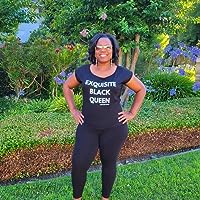
“Black Girls… Stop settling for less than what you deserve. That’s why I stress self-love! There comes a time when you can no longer blame a man. You’ve got to hold yourself accountable for the choices that you make. Choose wisely! Slow down. Pay attention. Don’t allow his good looks and swag to blind you from the truth. Don’t be so easily flattered by money, cars, jewelry, and all of that other stuff. Your heart and well-being is worth much more than that. Choose someone who respects, loves, and adores you. Somebody who has your best interest at heart. Nothing less! Allow yourself to experience REAL love. Stop giving your love, time, and attention to men who clearly don’t deserve it. #ItsAllUpToYou”
―
―

“My grandmother and my two aunts were an exhibition in resilience and resourcefulness and black womanhood. They rarely talked about the unfairness of the world with the words that I use now with my social justice friends, words like "intersectionality" and "equality", "oppression", and "discrimination". They didn't discuss those things because they were too busy living it, navigating it, surviving it.”
― Redefining Realness: My Path to Womanhood, Identity, Love So Much More
― Redefining Realness: My Path to Womanhood, Identity, Love So Much More
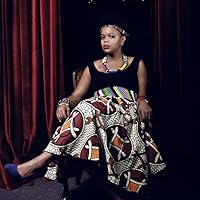
“The voice of a Black woman should always be HERSELF ...
No edits - no erasure - no pressure - no expectations - no additions - no intruders”
―
No edits - no erasure - no pressure - no expectations - no additions - no intruders”
―
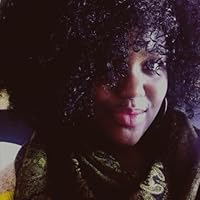
“I told the priest
my god is a black woman
he poured holy water on me
and scheduled me for an exorcism”
― Questions for Ada
my god is a black woman
he poured holy water on me
and scheduled me for an exorcism”
― Questions for Ada
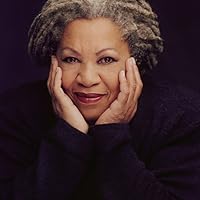
“Then they had grown. Edging into life from the back door. Becoming. Everybody in the world was in a position to give them orders. White women said, "Do this." White children said, "Give me that." White men said. "Come here." Black men said, "Lay down." The only people they need not take orders from were black children and each other. But they took all of that and re-created it in their own image. They ran the houses of white people, and knew it. When white men beat their men, they cleaned up the book and went home to receive abuse from the victim. They beat their children with one hand and stole for them with the other. The hangs that felled trees also cut umbilical cords; the hands that wrung the necks of chickens and butchered hogs also nudged African violets into bloom; the arms that loaded sheaves, bales, and sacks rocked babies into sleep. They patted biscuits into flaky ovals of innocence--and shrouded the dead. They plowed all day and came home to nestle like plums under the limbs of their men, The legs that straddled a mule's back were the same ones that straddled their men's hips. And the difference was all the difference there was.”
― The Bluest Eye
― The Bluest Eye
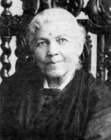
“The secrets of slavery are concealed like those of the Inquisition. My master was, to my knowledge, the father of 11 slaves... Did the mothers dare tell who was the father of their children? No, indeed! They knew too well the terrible consequences.”
― Incidents in the Life of a Slave Girl by Harriet Jacobs
― Incidents in the Life of a Slave Girl by Harriet Jacobs
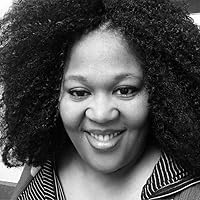
“It isn’t the color of a man's skin that's the problem, but the individual that encompassed it.”
― Black People Don't Ski
― Black People Don't Ski
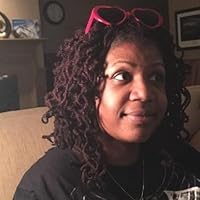
“Mainstream, white-centered feminism hasn't just failed women of color, it has failed white women. It's not making them any safer, any more powerful, or even any wiser.”
― Hood Feminism: Notes from the Women That a Movement Forgot
― Hood Feminism: Notes from the Women That a Movement Forgot

“The idea (and the reality) of Black success has always triggered some level of anger in American society.”
― Hood Feminism: Notes from the Women That a Movement Forgot
― Hood Feminism: Notes from the Women That a Movement Forgot

“Nor did I know back then that McCartney had written the song as an ode to Black women ("bird" being British slang for a pretty girl) at the pivotal moment of the civil rights struggle. That would only deepen my appreciation for "Blackbird”
― Better Living Through Birding: Notes from a Black Man in the Natural World
― Better Living Through Birding: Notes from a Black Man in the Natural World
“Many women I met during my time in the academy were very good to me. But in the wake of everything I lost, I wanted to reclaim parts of me with some semblance of wholeness before everything was burned in the fire. To do that, I needed to reconnect with people who knew me before I began chasing whatever success I thought I'd find being an acclaimed Womanist scholar. I need the people who knew me when my dreams were big, and my spirit and heart were unbroken.”
― Red Lip Theology: For Church Girls Who've Considered Tithing to the Beauty Supply Store When Sunday Morning Isn't Enough
― Red Lip Theology: For Church Girls Who've Considered Tithing to the Beauty Supply Store When Sunday Morning Isn't Enough
“Women in general, and African American women in particular, are still separated by a veil, albeit an invisible one. As long as women are divided by dichotomies that stem from gender oppression, e.g., virgin versus whore, respectable versus unrespectable, and, ultimately, wife versus the other woman, all of which puts women in competition for men, they will not be able to effectively challenge the structures that support some while not supporting others, and in some cases, even exploiting them.”
― We Want for Our Sisters What We Want for Ourselves: Polygyny: A Relationship, Marriage and Family Alternative
― We Want for Our Sisters What We Want for Ourselves: Polygyny: A Relationship, Marriage and Family Alternative

“If I fall off a cliff, believe me, I'll get back up. If I'm pushed off a cliff, still believe I'll get back up. But I'll never forgive the muthafucka that pushed me.”
― We Are the Scribes
― We Are the Scribes

“He revered Madam Harriet, as he’d called her. Honored her strength, resiliency, defiance. She seemed holy to him and I loved him more for it. But, simultaneously, he judged my mother, one of the most admired living Black women in the country, for her defiance and strength of will. She was a Black woman United States senator from Alabama, for goodness’ sake. An undeniable badass. Was that level of reverence only reserved for dead Black women? Or was the inconvenience of being Mr. Mom too blinding for him to see clearly?”
― We Are the Scribes
― We Are the Scribes
“We live in this world, where humanity is tested. AI is controlling the test, and we are not fighting back.”
― The Mother The Soldier The Activist
― The Mother The Soldier The Activist

“Why wasn't society sympathetic towards black people? Their land had been stolen. Their neighborhoods were burned down. Many of them faced mass eviction. Slavery. Segregation. Being barred from achieving an education and getting a high-end job.”
― Solana
― Solana

“Pregnancy is not something to take lightly,” he continued. “My mother suffered through two pregnancies, and nobody took care of her. Not even the doctors she went to. They told her that it was normal, that gestational hypertension and diabetes are something that many pregnant women experience, and that she was just being dramatic.”
― Solana
― Solana

“Dramatic. Was it normal for doctors to think black women were professional actresses, using their pregnancies to try to garner sympathy and attention from others?”
― Solana
― Solana

“She wanted Webb to know that she was done dealing with all of this. And she didn’t care about losing her job. If she lost her job for taking a stand against racism and sexism against black women coming from Webb, she’d calmly walk away and stand up for what she believed was right.”
― Solana
― Solana

“Although Marisol’s words were factual, they hit Charlize much too hard. Charlize was well aware of the racism and sexism that women of color faced. The institutional racism was real, and her mother had been a victim of it.”
― Solana
― Solana

“Solana pressed her hand to her stomach and the fluttering increased. The baby’s response to the mother’s touch.
“I'll never let you down,” she said. But she wasn’t sure if she could keep that promise. She felt so heartbroken for Mylez, so heartbroken for his innocent son, Jabari, who would have to grow up without a mother.
Motherlessness—Solana knew what it felt like firsthand because her mother abandoned her. And it still hurt, although she was a grown adult who could hold her own when it happened.”
― Solana
“I'll never let you down,” she said. But she wasn’t sure if she could keep that promise. She felt so heartbroken for Mylez, so heartbroken for his innocent son, Jabari, who would have to grow up without a mother.
Motherlessness—Solana knew what it felt like firsthand because her mother abandoned her. And it still hurt, although she was a grown adult who could hold her own when it happened.”
― Solana

“You have an army of supporters,” Marisol said. “We’re all here for you. You have every right to be upset about how your wife was treated as a black woman, how you were treated as a black man, and what that has resulted in. What happened is unforgettable, and it’s unforgivable too.”
― Solana
― Solana

“This is a reminder of the injustices black and brown women, and all women of color in the system face. The hospital simply attributed their deaths to pregnancy complications and childbirth. The babies were believed to have died from lung problems, birth defects, and heart and brain issues as well. But one thing we know is that ignoring these women’s concerns and subjecting them to unfair conditions also contributed to their untimely and scary deaths. This hospital needs to be shut down until they can come clean about their evil doings,” Yamileth continued.”
― Solana
― Solana
“What would my voice sound like if I dare to let it exist undisrupted?”
― This Thread of Gold: A Celebration of Black Womanhood
― This Thread of Gold: A Celebration of Black Womanhood
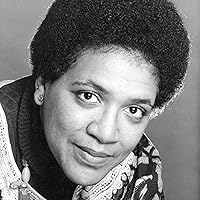
“And where the words of woneb are crying to be heard, we must each of us recognize our responsibility to seek those words out, to read them and share them and examine them in their pertinence to our lives. That we not hide behind the mockeries of separations that have been imposed upon us and which so often we accept as our own: for instance "I can't possibly teach Black women's writing- their experience is so different from mine," yet how many years have you spent teaching Plato and Shakespeare and Proust? Or another: "She's a white woman and what could she possibly have to say to me?" Or, "she's a lesbian, what would my husband say, or my chairman?" Or again, "This woman writes of her sons and I have no children." And all the other endless ways in which we rob ourselves of ourselves and each other.”
― The Cancer Journals
― The Cancer Journals

“And where the words of women are crying to be heard, we must each of us recognize our responsibility to seek those words out, to read them and share them and examine them in their pertinence to our lives. That we not hide behind the mockeries of separations that have been imposed upon us and which so often we accept as our own: for instance "I can't possibly teach Black women's writing- their experience is so different from mine," yet how many years have you spent teaching Plato and Shakespeare and Proust? Or another: "She's a white woman and what could she possibly have to say to me?" Or, "she's a lesbian, what would my husband say, or my chairman?" Or again, "This woman writes of her sons and I have no children." And all the other endless ways in which we rob ourselves of ourselves and each other.”
― The Cancer Journals
― The Cancer Journals
“She was dark-complexioned, with full lips and high cheekbones set gracefully on a smooth face—reminiscent of the beautiful women he admired while driving through small rural towns in South Carolina, Georgia, Alabama, and Mississippi. Onyx had a curvaceous and full-bodied figure, exuding confidence. She was homegirl thick and cornbread-fed—just the kind of woman he was typically attracted to.”
―
―
All Quotes
|
My Quotes
|
Add A Quote
Browse By Tag
- Love Quotes 98.5k
- Life Quotes 76.5k
- Inspirational Quotes 73.5k
- Humor Quotes 44k
- Philosophy Quotes 30k
- Inspirational Quotes Quotes 27.5k
- God Quotes 26.5k
- Truth Quotes 24k
- Wisdom Quotes 24k
- Romance Quotes 23.5k
- Poetry Quotes 22.5k
- Death Quotes 20k
- Life Lessons Quotes 20k
- Happiness Quotes 19k
- Quotes Quotes 18k
- Faith Quotes 18k
- Hope Quotes 18k
- Inspiration Quotes 17k
- Spirituality Quotes 15k
- Religion Quotes 15k
- Motivational Quotes 15k
- Writing Quotes 15k
- Relationships Quotes 14.5k
- Life Quotes Quotes 14.5k
- Love Quotes Quotes 14.5k
- Success Quotes 13.5k
- Time Quotes 12.5k
- Motivation Quotes 12.5k
- Science Quotes 12k
- Motivational Quotes Quotes 11.5k

